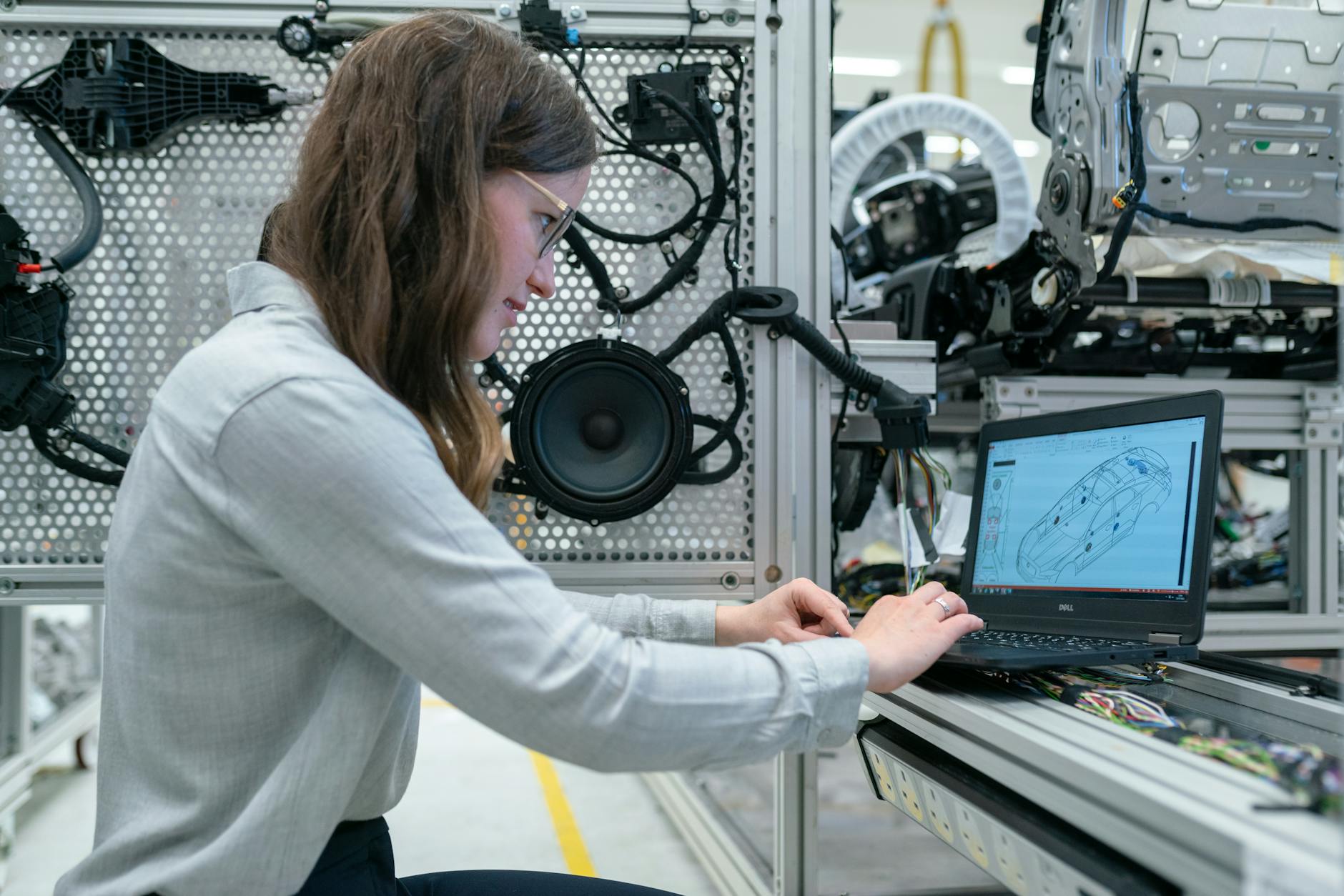The Future of Biking in India is rapidly evolving, driven by cutting-edge technology trends that promise to revolutionize two-wheelers across the country.
Table of Contents
- Introduction: The Shift in India’s Biking Industry
- Rise of Electric Two-Wheelers
- Smart Connectivity: The Digitalization of Bikes
- Advanced Safety Technologies
- Battery Innovation: Enhanced Range and Charging Speed
- Autonomous and AI-Driven Features
- Conclusion: Biking into the Future of India
Introduction: The Shift in India’s Biking Industry

India’s Biking Industry
The biking industry in India has undergone a revolution in recent years. As cities become congested and environmental consciousness grows, people are turning towards eco-friendly and tech-advanced biking options. With cutting-edge technologies like electric propulsion, AI safety systems, and smart connectivity, the future of biking in India promises to be efficient, eco-conscious, and thrilling. Let’s dive into the top five technology trends powering two-wheelers and shaping India’s biking future.
1. Rise of Electric Two-Wheelers
The future of biking in India is undoubtedly electric. With the government pushing for eco-friendly transport solutions, electric two-wheelers are gaining traction among urban commuters. The reduced cost of electricity compared to fuel, along with subsidies on electric vehicles, makes them an attractive option.
Why Electric Bikes are Game-Changers:
- Cost Savings: Electricity is much cheaper than petrol, making these bikes economical.
- Zero Emissions: Electric bikes help in reducing air pollution, aligning with India’s climate goals.
- Government Incentives: Policies such as the FAME India Scheme incentivize electric vehicle adoption.
For instance, brands like Ather Energy and Ola Electric are introducing bikes with impressive range, high-speed charging, and modern designs that appeal to urban commuters. As battery technology improves, electric two-wheelers will only become more efficient and affordable, marking a significant milestone in India’s biking landscape.
2. Smart Connectivity: The Digitalization of Bikes
Another significant trend in the future of biking in India is the integration of smart connectivity features in two-wheelers. Advanced GPS tracking, smartphone connectivity, and IoT capabilities are being integrated into bikes to offer a seamless experience. These technologies allow riders to connect with their vehicles remotely, monitor health diagnostics, and even set anti-theft alarms.
Key Smart Features:
- GPS Navigation: Riders can navigate efficiently through busy Indian streets.
- Smartphone Integration: Features like remote locking, battery monitoring, and location tracking enhance convenience.
- Anti-theft Measures: Advanced GPS tracking and remote locking make bikes safer.
Hero MotoCorp, for example, has introduced smart connectivity in its models, allowing riders to access real-time information about their bikes. With connectivity transforming the rider experience, the Indian biking market is on the verge of a smart revolution.
3. Advanced Safety Technologies

Safety Technologies
Safety remains a top priority, especially in a country like India with high road accident rates. Cutting-edge safety technologies such as Anti-lock Braking Systems (ABS), traction control, and collision warning systems are becoming standard in modern two-wheelers. With AI integration, bikes can now anticipate and respond to potential hazards, providing an additional layer of protection for riders.
Top Safety Innovations:
- ABS (Anti-lock Braking System): Prevents wheel lockup, ensuring stability during sudden braking.
- Traction Control: Maintains grip on slippery roads, especially useful during the monsoon season.
- AI-Based Collision Detection: Warns riders of possible collisions and helps avoid accidents.
For instance, Yamaha and TVS are introducing models with ABS and other AI-based safety features. With these advancements, the future of biking in India will bring safer rides, minimizing risks on the road and ensuring a secure journey for all.
4. Battery Innovation: Enhanced Range and Charging Speed
Battery life and charging speed are critical aspects of electric bikes. Recent advances in lithium-ion batteries, fast-charging technologies, and even solid-state batteries redefine what electric two-wheelers can achieve. The focus is on enhancing the range, reducing charging times, and improving the overall performance of electric bikes.
Key Battery Advancements:
- Fast Charging: Reduces waiting times, allowing riders to charge their bikes quickly.
- Extended Range: New batteries provide longer distances on a single charge, making electric bikes practical for longer commutes.
- Durability: New materials and designs make batteries last longer, lowering maintenance costs.
Indian companies like Revolt Motors and international brands are actively researching ways to boost battery efficiency. Enhanced batteries mean that electric bikes will be suitable for urban and intercity travel, making the future of biking more convenient and reliable for Indian commuters.
5. Autonomous and AI-Driven Features

Imagine a bike that can detect traffic conditions, adjust its speed, and provide safety insights based on real-time data. Autonomous and AI-driven features are gradually making their way into two-wheelers, bringing futuristic capabilities to the industry. Though fully autonomous bikes are still experimental, AI-assisted riding technologies are already enhancing the riding experience.
Innovative AI Features:
- Traffic and Weather Adaptation: Bikes can adjust to traffic patterns or weather conditions, enhancing safety.
- Predictive Maintenance: AI algorithms can predict when parts need maintenance, preventing breakdowns.
- Enhanced User Experience: AI-powered dashboards provide real-time insights and suggestions for an optimized ride.
Companies like BMW and Yamaha are experimenting with autonomous capabilities in their premium models, and it’s only a matter of time before similar technologies become mainstream in the Indian market. These innovations will redefine the future of biking in India, making rides safer and more convenient.
Conclusion: Biking into the Future of India
The future of biking in India looks bright as technological advancements pave the way for safer, smarter, and more sustainable transportation options. Electric two-wheelers, smart connectivity, advanced safety features, battery innovations, and autonomous riding technologies are shaping the biking industry, making it more exciting and efficient. With government support and consumer demand, adopting these tech trends will likely accelerate, bringing about a biking revolution across the nation.
External Resources:
- FAME India Scheme – Faster Adoption and Manufacturing of Electric Vehicles
- Ather Energy: Electric Bikes in India
With an ever-growing focus on green solutions and the evolution of two-wheeler technologies, India’s biking future is all set for a thrilling ride.

